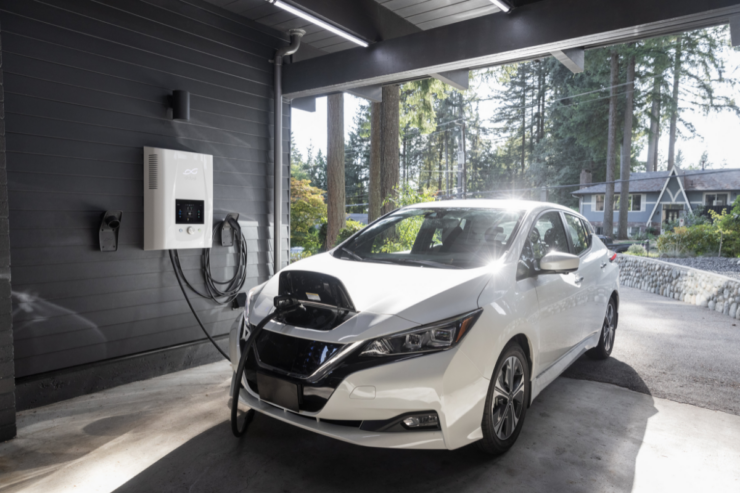The topic of self-driving cars is no longer limited to the world of technology. With Companies like Google, Tesla, Intel, and Uber all pursuing autonomous vehicles, the discussion has entered the public space. Now, before anyone gets too excited, note that we still have a long way to go, especially given all the legal and regulatory barriers self-driving cars face. But while a driverless society may look like a dream, we’re moving faster than we think. The concept of a self-driving car is simple to grasp. But not many people understand how it will change our lives. There are 6 unexpected ways that driverless cars will affect our lives.
1. Safer Roads
Self-driving cars are projected to significantly make the road safer. Your automobile will be able to operate freely with a 360-degree view of its surroundings at all times, thanks to onboard sensors, GPS, cameras, safety systems, and radar. Experts believe self-driving will eliminate the element of human error in driving, which currently accounts for 90 percent of all road accidents. Unlike human drivers, self-driving cars will not will they exceed speed limits, use their phones while driving, or drive while under the influence of drugs or alcohol. As a result, it is projected that the widespread use of self-driving vehicles will considerably reduce the number of road accidents.
2. Lower Gas Emission
Driverless cars may help save our world in addition to saving lives. Because autonomous cars are designed to maximize efficiency in acceleration, speed fluctuation, and braking, they lower carbon emissions and contribute to increased fuel efficiency. According to McKinsey, the adoption of self-driving cars could help reduce the emissions of CO2 by about 300 million tons each year. To put that in context, that equates to half of the CO2 emissions generated by the commercial aviation industry.
3. Less Congestion and Faster Travel
Every day, commuters and travelers lose billions of hours due to traffic congestion. It is projected that when autonomous cars become fully available, travel time might be reduced by up to 40%. If that is all that is required, traffic officers will have an easier time keeping the roads safe. Human drivers are notorious for causing stop-and-go traffic, which leads to traffic congestion. Not to mention distractions such as jams and lane changes. Self-driving cars may be the answer to traffic congestion, and people will no longer have to worry about being delayed in traffic for hours.
4. Reduced Transportation Costs
 The costs of maintaining human-driven cars can be high. When it comes to driverless automobiles, everything from service and parking to the cost of insurance will be decreased. There is also speculation that driverless car technology could assist in resolving the last mile problem. When taking public transportation, commuters often struggle with the final mile between their residences and the drop-off site.
The costs of maintaining human-driven cars can be high. When it comes to driverless automobiles, everything from service and parking to the cost of insurance will be decreased. There is also speculation that driverless car technology could assist in resolving the last mile problem. When taking public transportation, commuters often struggle with the final mile between their residences and the drop-off site.
Because driverless vehicles can easily find a suitable parking spot on their own, they will make public transportation more accessible and convenient. According to the Ohio University study, they are also projected to enhance fuel economy by up to 10%.
5. Reduce the Number of Cars on the Road
Experts believe that self-driving cars could drastically alter consumers’ travel habits, prompting many to abandon automobile ownership in favor of on-demand robot taxis.
According to a study carried out by the University of Michigan Transportation Research Institute, driverless cars might reduce automobile ownership by up to 43 percent in the United States.
One major reason for this is that using a shared fleet automobile rather than your own autonomous car will be more cost-effective.
6. Increase Productivity
Productivity will skyrocket if people spend all of their newfound spare time working. According to a Morgan Stanley analysis, autonomous vehicles might lead to $507 billion in annual productivity improvements in the United States alone. When productivity benefits are added to other savings achieved by autonomous vehicles, such as accident prevention and fuel efficiency savings, the total potential annual savings to the US economy will exceed $1.3 trillion. Morgan Stanley predicts that figure might reach $5.6 trillion globally.
7. Advanced Urban Centers
Driverless automobiles will have a significant impact on metropolitan infrastructure. We’ve made the world less friendly for people who bike and walk, cars have virtually triumphed, but driverless cars may shift the emphasis back to pedestrians. According to a recent report published by the National Association of City Transportation Officials, autonomous vehicles will move with greater accuracy than human-driven cars.
Streets may also become narrower, setting more aside for cyclists and pedestrians. Also, with cars spending less time in the car parks, there won’t be more need for garages and parking lots. This could free up space for other essential purposes, like parks.











